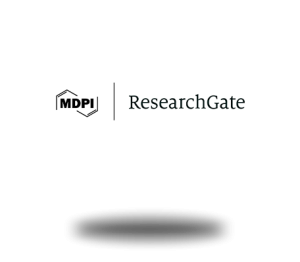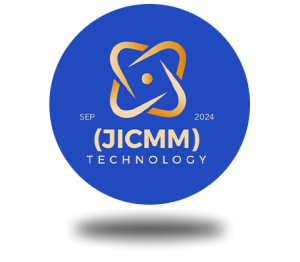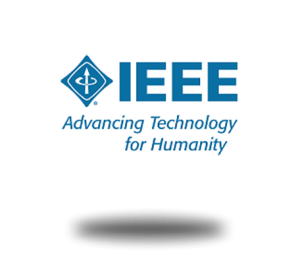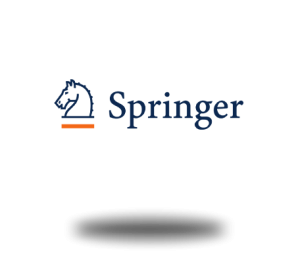Jordan International Conference on Mathematical Models in Medical Treatments and Computer Science
(JICMM 2024)
2024 September 30, Dead sea
Excellency Al-Sharifa Bodour bint Abdulelah
Prof. Mamoun Abu Hammad
Dr. Shameseddin Alshorm
Prof. Mamoun Abu Hammad
Dr. Shameseddin Alshorm









Objectives and Scope
The Academy of Bright Minds for Human Resources Development invites you to participate in the “Jordan International Conference on Mathematical Models in Medical Treatments and Computer Science”, in its second edition, whose activities will be held in Amman – the capital of the Hashemite Kingdom of Jordan, after 9/30/2024, with a high-level international and regional presence, to discuss scientific issues. The process, strategies, and legislation related to artificial intelligence and future technologies, mathematics and contributing to offering solutions and initiatives that will contribute to adapting to future professions, and encouraging leadership and creativity in these fields.
KEYNOTE SPEAKERS
Prof. Adel Ouannas
Fractional Order Control and Synchronization of Chaotic Systems
Dr. Adel will discuss the latest advances and applications of fractional- order control and synchronization of chaotic systems, explaining the concepts involved in a clear, matter-of-fact style. The presentation comprises 30 original contributions written by eminent scientists and active researchers in the field. These contributions address theories, methods, and applications in various research areas related to fractional- order control and synchronization of chaotic systems. Topics covered include fractional chaotic systems, hyperchaotic systems, complex systems, fractional-order discrete chaotic systems, chaos control, chaos synchronization, jerk circuits, fractional chaotic systems with hidden attractors, neural networks, fuzzy logic controllers, behavioral modeling, robust and adaptive control, sliding mode control, different types of synchronization, circuit realization of chaotic systems, and more.
KEYNOTE SPEAKERS
Prof. Mamoun Abu Hammad
Fractional Fourier Series with Applications
Dr. Mamoun will discuss Fourier series, which is one of the most important tools in applied sciences. For instance, it serves as a powerful method for solving partial differential equations. Additionally, Fourier series can be employed to determine the sums of certain numerical series. Fractional partial differential equations have demonstrated numerous applications in physics and engineering, with various definitions of fractional derivatives available. A recent addition to these definitions is the conformal fractional derivative.
KEYNOTE SPEAKERS
Dr. Shameseddin Alshorm
Numerical Solution for Fractional-Order Mathematical Model of Immune- Chemotherapeutic Treatment for Breast Cancer Using Modified Fractional Formula
Dr. Shameseddin Alshorm will discuss cancer, a complex and diverse group of diseases characterized by the uncontrolled growth and spread of abnormal cells in the body. Tumors, commonly associated with cancer, refer to abnormal masses of tissue that can develop in various organs or tissues. Cancer can originate from almost any cell type in the body, affecting different organs and systems. The disease occurs when the normal processes of cell division and growth go awry, resulting in the formation of malignant tumors. These tumors have the potential to invade nearby tissues and spread to distant parts of the body through a process known as metastasis.
KEYNOTE SPEAKERS
Dr. Maria Alessandra Ragusa University of Catania Italy
Dr. Ovidiu Bagdasar Dimitri University of Derby UK
Dr. Moobin Fin University of Thailand Thailand
Dr. Dumitru Baleanu University of Romania Romania
Dr. Roshdi R Khalil University of Jordan Jordan
Dr. Mirjana Ivanovic University of Novi Sad Serbia
Dr. Helen D. Karatza Aristotle University of Thessaloniki Greece
Dr. Karl Meneghella Thailand
Topics and Tracks
Cyber Security
Authentication, Access Control and Authorization, Blockchain and Cryptocurrency, Cloud Computing Security, Cryptology and Its Application, Cybercrime Awareness, Data Protection, Digital Forensics, Distributed Systems Security, Embedded Systems Security, Hardware Security, Hate, Harassment, and Online Abuse, Information Security, Intrusion Detection and Prevention, Laws and Regulations, Malware and Unwanted Software, Network Security, Operating Systems Security, Protocol Security, Security and Privacy Metrics and Policies, Security Architectures, Systems Security, Web Security, Wireless and Mobile Security/Privacy
Artificial Intelligence and Data Science
Smart Technologies and Sustainability
Distributed Energy Resources, Material Science, Intelligent Transportation Systems, Energy and Electricity Grid, Powered Smart City Services, Smart Education, Smart Health Care System, Drone technology, Open Data and Big Data Analytics, Smart Traffic System, Smart Driverless Vehicles, Internet of Things.
Computer Vision and Multimedia Systems
Pattern Recognition, Computer Vision, Medical Imaging, Animated Technologies, Virtual Reality, 3D Printing, Audio, Image, and Video Analysis, Image Processing and Modelling.
Software Engineering
Software Engineering and Quality, Continuous Software Engineering (e.g., DevOps, agile, etc.), Formal Methods Applied to Software Engineering, Human and Social Aspects of Software Engineering, Machine Learning Applied to Software Engineering, Model-Driven Software Engineering, Search-Based Software Engineering, Software Architecture, Software Economics and Metrics, Software Engineering Education and Training, Software Maintenance and Evolution, Software Process, Information Systems.
E-Technologies
E-Business, E-Learning, Distance Learning, E-Education, E-Government, Digital Marketing, Smart Cities, Mobile Applications.
Computer Engineering
Computer Architecture, Embedded Systems, Digital Circuits Applications, Parallel and High-Performance Processing, Performance Evaluation and Modeling, Storage Systems, GPUs, Multicore Processors, and Hardware Accelerators.
Mathematical Modeling and Analysis
Author Kit
The JICMM 2024 paper submission and review processes will be entirely electronic and will be conducted online using EDAS as described below:
Authors who wish to participate in the conference need to register with the EDAS on-line submission system and then use it to submit their full papers.
Full paper submission (up to 6 pages) must be completed on or before the “Paper Submission” deadline listed in the Important Dates section
The submitted full papers will be peer reviewed, using the online review system, by experts selected by the conference Technical Program Committee for their demonstrated knowledge of relevant topics. The results of the review process will be posted on this website, and authors will also be notified by email. Review results will be ready by the date of “Review Decision Notifications”.
Authors of accepted papers will prepare a final version of their papers and will submit it using the EDAS online submission system. The version of the final manuscript will be substantially the same as the submitted full paper but will take into account reviewers’ comments. The final paper must be completed and submitted on or before the “Final Submission and Author Registration” deadline.
The final version of an accepted paper will appear in the conference proceedings provided that at least one of the authors registers. This must be carried out on or before the “Final Submission and Registration” deadline
Format
To make the review process easy for reviewers, and to assure that submitted papers and final manuscripts are readable through the online review system, authors are asked to submit papers that are formatted according to the instructions given below. Submitted paper formatting is identical to final manuscript formatting. Papers not conforming to the required format will be rejected without review. Similarly, final manuscripts not conforming to the required format will not appear in the proceedings.
Journals
1- MDPI , open access publishing, MDPI has supported academic communities since 1996. Based in Basel, Switzerland.
2-Results in Nonlinear Analysis (RNA).
3-International Journal of Advanced Research (IJAR) 4-International Journal of Applied and Computational Mathematics